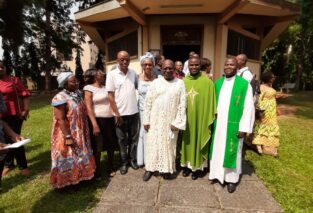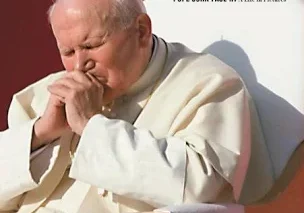Pope Benedict XVI once said, “Music can become prayer.” This reflects his deep appreciation for the spiritual and transcendent qualities of music within the context of Christian worship and personal devotion. Here are some key points to understand this statement:

Liturgy and Worship: In the Catholic Church, music plays a crucial role in the liturgy, which includes the Mass and other sacraments. Hymns, psalms, and chantsare integral to the worship experience, helping to elevate the minds and hearts of the faithful to God. By participating in sacred music, believers can experience a form of prayer through their voices and hearts.
Spiritual Connection: Music can express emotions and thoughts that words alone might not fully capture. For Pope Benedict XVI, music that is crafted with devotion and performed with reverence can become a medium through which one encounters the divine. It can inspire contemplation, gratitude, and a sense of the sacred.
Historical and Theological Roots: The Church has a long tradition of using music as a form of prayer. For centuries, Gregorian chant, polyphony, and other forms of sacred music have been used to glorify God and aid in the worship experience. Pope Benedict XVI, a scholar of theology and an admirer of classical music, an accomplished piano player, often highlighted the importance of this tradition.
Personal Devotion: Beyond public worship, music can also play a role in personal prayer. Listening to or performing sacred music can be a way for individuals to connect with God on a personal level, aiding in meditation, reflection, and the expression of one’s innermost spiritual longings.
Beauty and Transcendence: Pope Benedict XVI often spoke about the relationship between beauty and God. He believed that beauty in music can lead people to a deeper understanding of divine truth and love. Music that embodies beauty and harmony can thus become a form of prayer by pointing to the ultimate source of all beauty—God Himself.
In summary, when Pope Benedict XVI says “Music can become prayer,” he is emphasizing the profound ability of music to facilitate a spiritual encounter, to elevate the soul, and to express the inexpressible aspects of human longing and devotion towards God. This view underscores the significant role that music plays in the life of the Church and the personal spiritual lives of believers.




